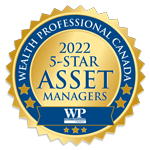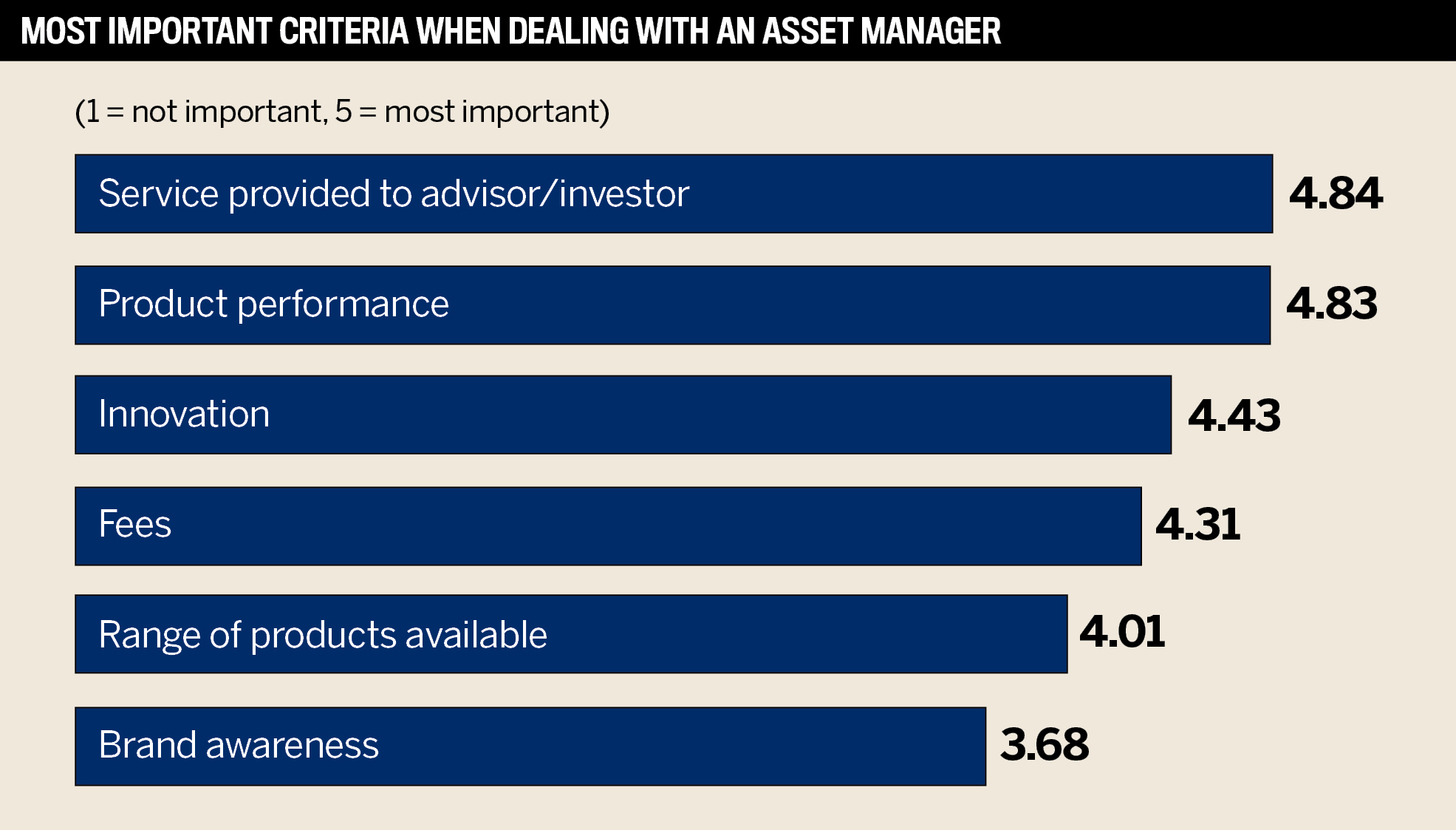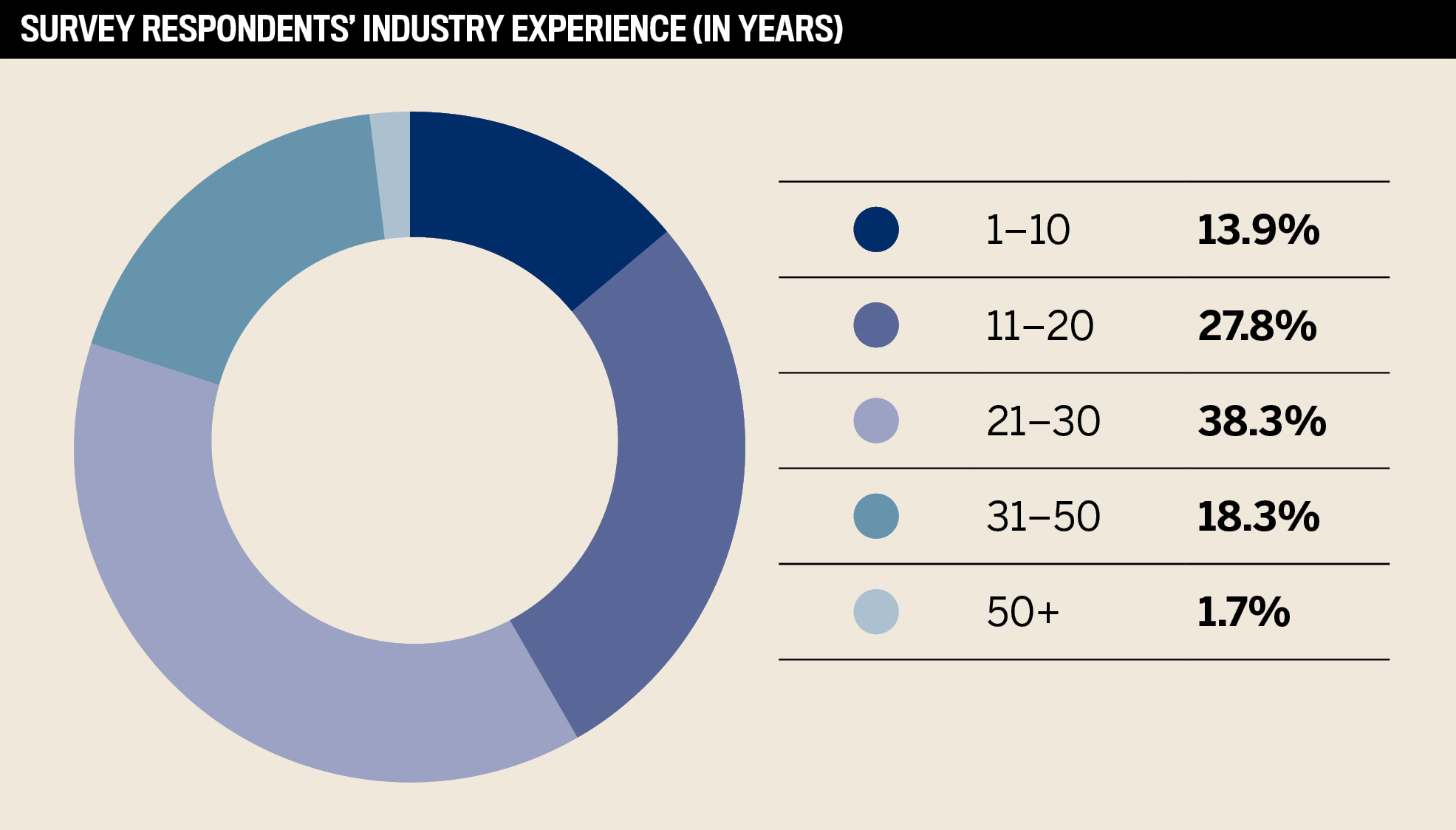

Jump to winners | Jump to methodology
Financial markets are going through intense uncertainty and weakness. In the face of record-high inflation, many central banks are taking bold action – the US Federal Reserve hiked rates to between 2.25% and 2.5%, the Bank of Canada has increased them to 2.5%, while the UK is at 1.75% – the highest rises in decades. Unsurprisingly, bearish sentiment has taken hold; a Bloomberg survey of economists conducted in July predicted the median probability of a recession at 47.5%, up from 30% in June.
The change from the past era of optimism – including the astonishing bull rally that accompanied the pandemic – has been whiplash-inducing. Up to July of this year, the S&P 500 posted a -13.34% return, a veritable fall from grace compared to the 26.89% annual return it saw last year. The Dow Jones Industrial Average has gone down 9.61% through July, a far cry from last year’s annual return of 18.65%.
Our winning 5-Star Asset Managers are not standing still. Amid a shifting landscape, these firms are leading the way by examining their offerings, exploring new asset classes, and diving into secular themes in order to help investors preserve their wealth and pursue investment objectives.
“We expect most major asset managers to continue to build out or launch their alternative strategies. This does present challenges and opportunities as the due diligence involved is more complex”
Adam Elliott, iA Clarington Investments

The past few decades have been hospitable for the asset management industry, with global assets under management rising at an average of 7% over the past 20 years, according to figures reported in BCG’s 2022 Global Asset Management Report. Last year, global AUM grew at 12%, ending with US$112 trillion. From 2005 until 2021, the consulting firm estimates revenues from market performance constituted 90% of total revenue growth for the industry.
Thanks to that strong market-powered performance, many investors have seen healthy returns by buying and holding on to relatively low-cost passive funds that track major equity indexes. But as rising interest rates and inflation threaten returns, portfolio playbooks that have done so well are set to be revisited and substantially rewritten.
“With higher interest rates and potentially elevated inflation, we do expect that advisors and their clients will be doing some portfolio reconstruction, as many portfolios had likely been set to benefit from the previous paradigm of low rates and inflation,” explains Kristi Ashcroft, executive vice president, products and solutions at Mackenzie Investments.
Even in less trying times, achieving lift-off has been increasingly challenging for new funds. In a 2019 note, Elisabeth Kashner, director of ETF research at FactSet, said the number of ETFs that accumulate less than US$50 million or close up shop in their first year had been growing steadily since 2003. With more and more freshman funds failing to achieve that threshold to survive into a viable strategy for investors, portfolio managers at the helm of newly launched vehicles will be particularly challenged as they navigate today’s choppy markets.
“Many products launched in 2021 will likely struggle given their entry has been tested by this year’s bear market correction,” says Adam Elliott, president and CEO, iA Clarington Investments. “Products with conservative mandates but low return expectations may struggle to compete with guaranteed vehicles now yielding 4%-5%. Additionally, as fee pressures return to the industry, the minimum asset levels required for products to be viable likely move higher given tighter margins.”
As central banks put in place measures to tame inflation, the conversation is not about the possibility of recession, but about how bad it could get. JPMorgan CEO Jamie Dimon’s recent comments “I said there’s storm clouds but I’m going to change it, it’s a hurricane” and his warning “You’d better brace yourself” remain the boldest interpretation of what markets are thinking.
In addition, the sheer velocity and magnitude of rate hikes this year have had a chilling effect on growth stocks, including the tech trade that’s been so profitable for investors.
“Many investors have built up fairly significant tilts to growth factors in their portfolios over the past several years, and this has been an important period over which to recalibrate that,” Ashcroft says.
“With higher interest rates and potentially elevated inflation, we do expect that advisors and their clients will be doing some portfolio reconstruction, as many portfolios had likely been set to benefit from the previous paradigm of low rates and inflation”
Kristi Ashcroft, Mackenzie Investments

Given the ongoing turmoil in the public markets weighing on returns, coupled with increased cost sensitivity among investors, asset managers are likely to see a continuation of the long-term downward pressure on fund fees. The major exception is alternative investments, where there are fewer passive options and the asset classes investors and advisors are seeking exposure to are much more complex than traditional stocks and bonds.
“We expect most major asset managers to continue to build out or launch their alternative strategies,” Elliott explains. “This does present challenges and opportunities as the due diligence involved is more complex. Dealers are generally more reticent to approve untested strategies, and liquidity restrictions are often challenging for advisors and investors used to daily liquidity in more traditional strategies.”
As the BCG report noted, investors seeking returns above those in publicly traded markets have begun shifting towards alternative assets, whose long lock-in periods and complex underlying deals allow them to offer large illiquidity premiums. From 2021 until 2026, the firm predicts assets under management in private equity will grow by more than 12%, while AUM in real estate will increase by roughly 6%, well above expected growth rates for traditional assets.
“We believe there are exciting trends toward expanding retail investors’ access to private assets such as private credit, infrastructure and private equity, and we believe investor allocations to these areas will increase over the next few years as some traditional asset class returns may be more muted in the current environment,” Ashcroft says. “Private assets represent an exciting opportunity to diversify portfolios and enhance risk/return characteristics, while innovative product structures mean that investors can have some liquidity and not have their money tied up for extended periods.”
Alternative products made up more than 40% of total revenue in the asset management industry last year according to BCG, even though the category comprised less than 20% of global AUM. Over the next five years, revenue from alternative products is expected to exceed half of all global asset management revenues, largely due to the fees alternative assets can fetch.
“As investors look to reposition their portfolios, we have seen heightened interest in alternative strategies, such as our infrastructure strategy, which has greatly benefited portfolios during recent market volatility,” says Duane Green, president and CEO of Franklin Templeton Canada. “Markets like these create a willingness to look beyond the typical 60/40 balanced portfolio and explore new asset classes. We hope that this volatility has also opened investors’ eyes to the value of advice.”
“Above simply greening its own portfolios, the asset management industry has a large part in driving the sustainability transition for many companies by helping influence change through their investment decisions, which will protect and create value for our clients over the long term”
Duane Green, Franklin Templeton Canada
Amid heightened concerns around climate change, there’s major growth in sustainable investing. The push to reach the UN’s global target of net-zero emissions by 2050 has been a major tailwind; BCG estimates meeting that deadline would require the public and private sectors to deploy between US$100 trillion and US$150 trillion. For the asset management industry, the sustainable investing market could represent US$20 trillion and US$30 trillion in bond and equity allocations, respectively, over the next 30 years.
“Investors are increasingly expressing their desire to vote with their wallets and support products and companies that act sustainably, and now that extends to how they allocate their savings and investment dollars,” Ashcroft says. “Therefore, as stewards of their capital, we anticipate asset managers will continue to face increasing demands to invest responsibly and engage with corporate leaders to effect positive change in their corporate policies on environmental, social and governance issues.”
“Above simply greening its own portfolios, the asset management industry has a large part in driving the sustainability transition for many companies by helping influence change through their investment decisions, which will protect and create value for our clients over the long term,” Green adds.
While the opportunity from sustainable investing is clear, it creates challenges because many managers have limited experience and commitment to sustainability. Therefore, investors and advisors have to be careful in selecting truly sustainable investment products and asset managers, avoiding those that are just greenwashing with a marketing campaign. A 2021 study by InfluenceMap, for instance, looked at 593 ESG funds; 71% failed a test to determine their alignment with global targets set by the Paris Agreement. Out of 130 specifically climate-themed funds reviewed, 55% garnered negative Paris Alignment scores.
“We think that corporate goals of profitability and social usefulness are no longer mutually exclusive; they are interdependent,” Green says. “Deployment of capital in a socially and environmentally responsible manner is key, while simultaneously creating long-term value.”
To find the best asset managers in the Canadian investment industry, Wealth Professional surveyed hundreds of advisors across the country, asking them to name the asset managers they hold in the highest regard. Survey respondents rated their favourite asset managers across five categories: service provided to the advisor/investor, fees, innovation, range of products available, and brand awareness.
WP also asked advisors which of these aspects was most important when working with an asset manager. At the end of the survey period, the WP research team tallied the scores from all advisors, and the highest-scoring companies were named 5-Star Asset Managers for 2022.